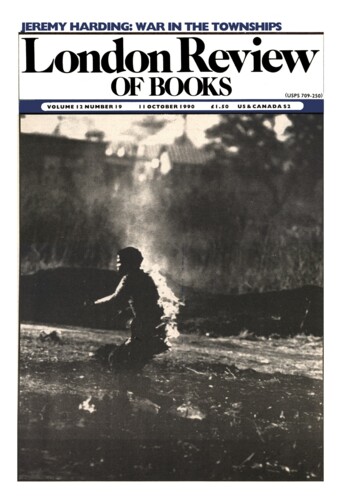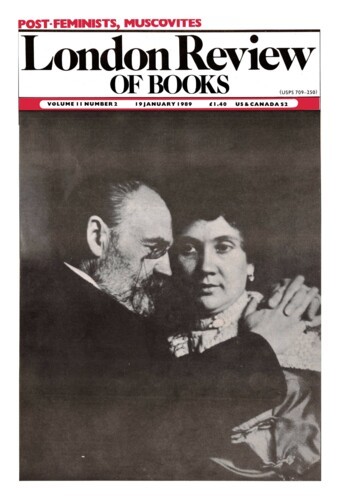Rupert Christiansen
Rupert Christiansen is the author of Romantic Affinities and of a biography of Maria Callas. His most recent publication is The Grand Obsession, an anthology of writing on opera.
Cooking it up
Rupert Christiansen, 19 January 1989
Brecht thought opera kulinarisch, a cooked-up business – a view that has been widely quoted without exerting much influence. Opera still dominates the kitchen of the performing arts in the Western world, imperiously consuming resources and insisting that it be kept properly dusted and aired. Its pretensions have not been reduced by the exigencies of Modernism, by media technology, or by the brutalities of recent history. It has never deigned to truck with materialist or naturalist riff-raff, and sees little reason to start doing so. It manages to live comfortably off the capital of its glorious past, but finds new investment unremunerative: last season Covent Garden presented only one opera written since the outbreak of the First World War, and the number of new works since 1945 which have survived in the international repertory can be counted on the fingers of one hand. What is it in our social psychology that feels obliged, or inclined, to maintain this chronically demanding, persistent invalid on its immensely cumbersome life-support system? Why should we believe that a red velvet and gold-leaf arena of musical entertainment is an essential symbol of our cultural respectability?
Pieces about Rupert Christiansen in the LRB
Vanishings
Peter Swaab, 20 April 1989
Wordsworth’s poetry has been able to animate critical writing, relevantly, from several different points of view. Narratologists have discussed the gaps in his storytelling and the...
Read anywhere with the London Review of Books app, available now from the App Store for Apple devices, Google Play for Android devices and Amazon for your Kindle Fire.
Sign up to our newsletter
For highlights from the latest issue, our archive and the blog, as well as news, events and exclusive promotions.


